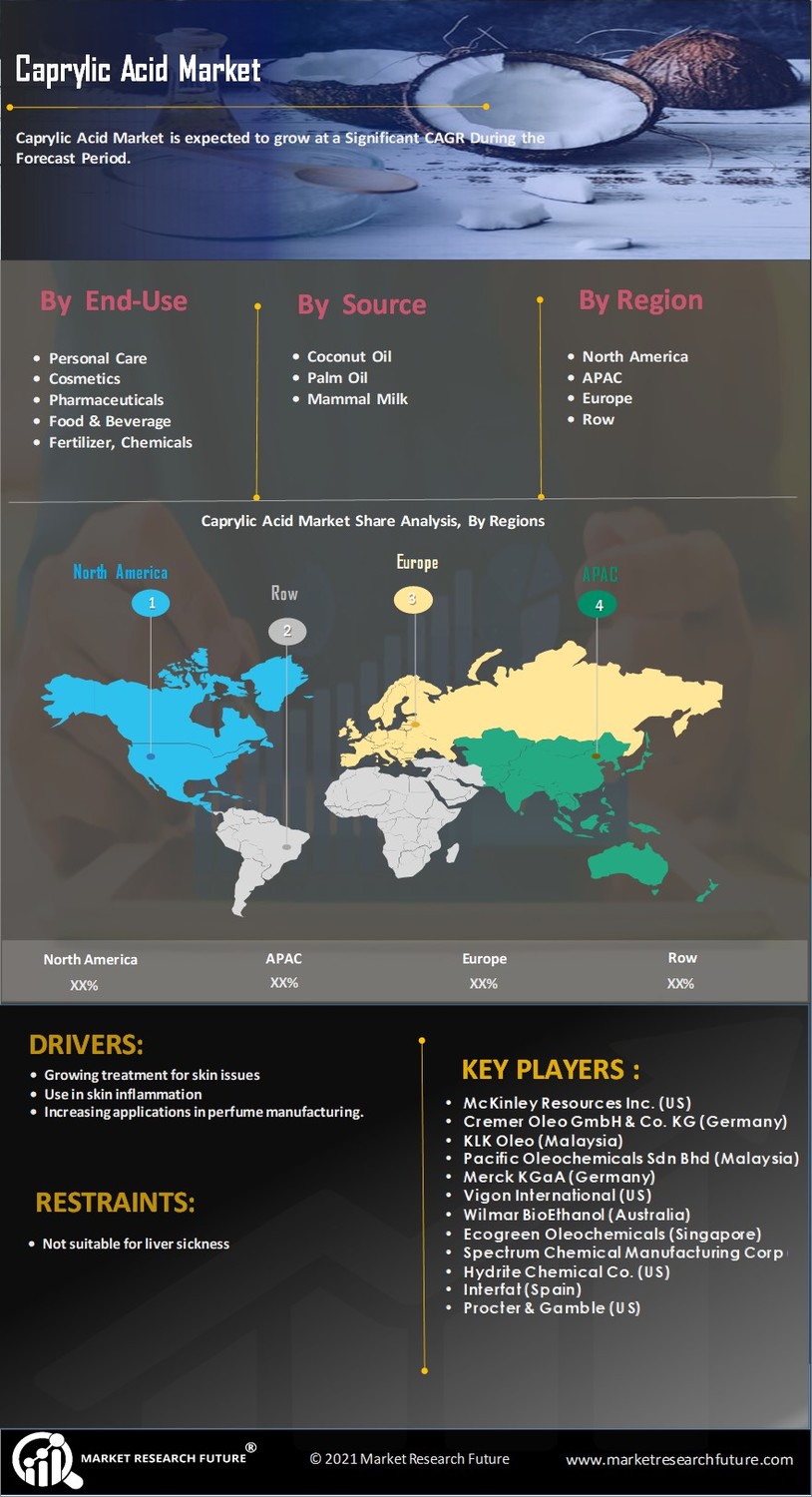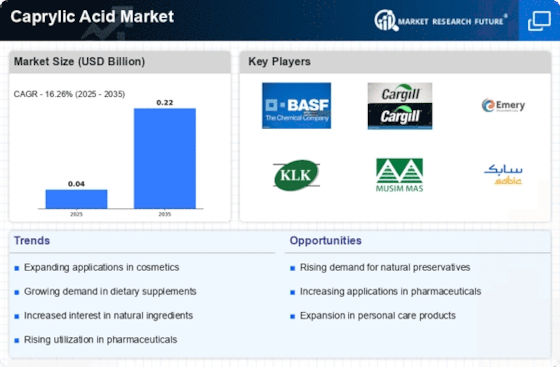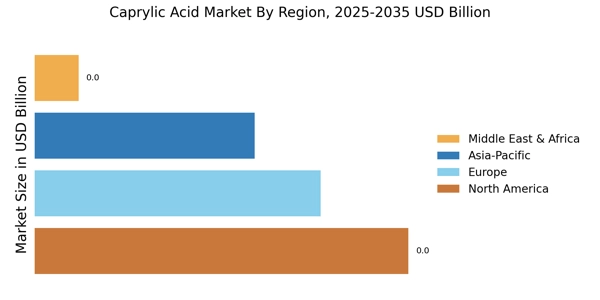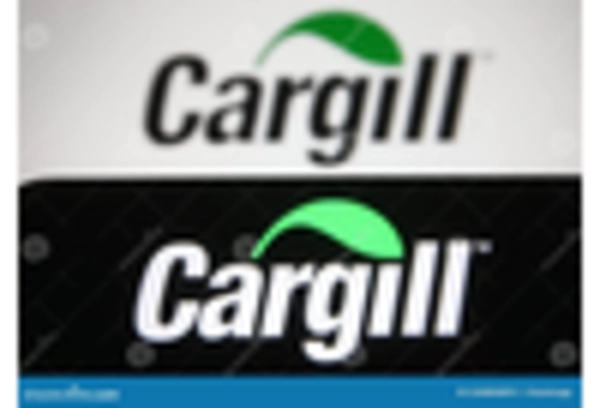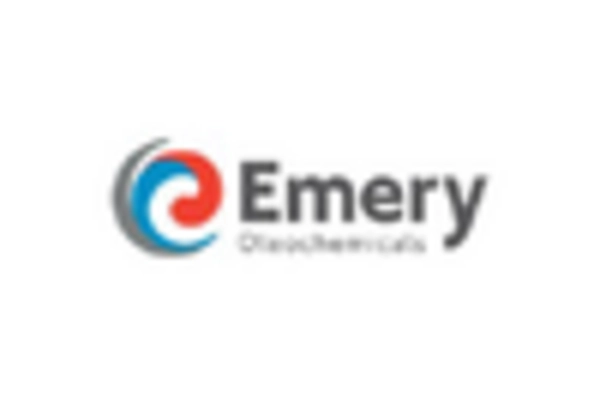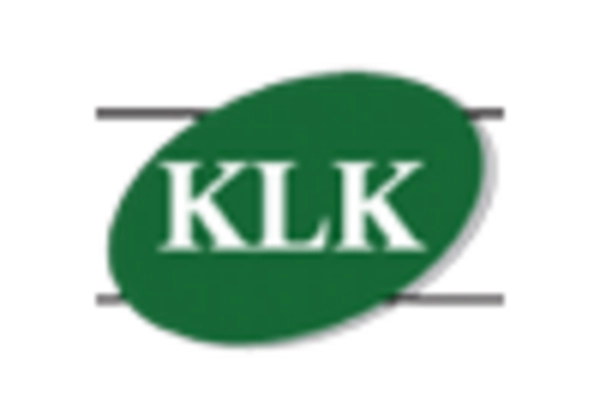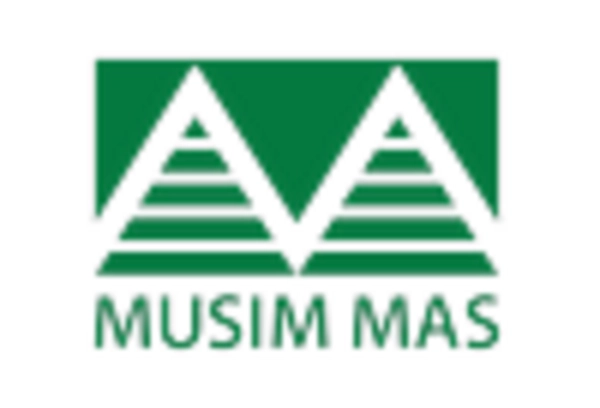Emerging Trends in Animal Feed
The caprylic acid Market is also influenced by emerging trends in animal feed, where caprylic acid is recognized for its potential benefits in livestock health. Its antimicrobial properties can help improve gut health and overall animal performance. The animal feed market is projected to grow at a rate of approximately 5% annually, driven by the increasing demand for high-quality animal products. As livestock producers seek to enhance animal health and productivity, the inclusion of caprylic acid in feed formulations is likely to gain traction. This trend suggests a potential expansion of the Caprylic Acid Market into the animal nutrition sector, reflecting its versatility and broad applicability.
Rising Demand in Nutraceuticals
The Caprylic Acid Market is benefiting from the rising demand for nutraceuticals, which are products derived from food sources with health benefits. Caprylic acid is recognized for its potential health benefits, including its role in supporting gut health and weight management. The nutraceutical market is projected to grow at a rate of approximately 7% per year, driven by increasing consumer interest in preventive healthcare. This trend indicates a growing acceptance of caprylic acid as a dietary supplement, which could significantly enhance its market share. As more consumers seek natural alternatives for health improvement, the Caprylic Acid Market is likely to see a corresponding increase in demand.
Growth in Personal Care and Cosmetics
The Caprylic Acid Market is witnessing growth fueled by its incorporation in personal care and cosmetic products. Caprylic acid is valued for its emollient properties, making it a popular ingredient in lotions, creams, and hair care products. The personal care market is anticipated to expand significantly, with a projected growth rate of around 4% annually. This growth is attributed to rising consumer awareness regarding skin health and the demand for natural ingredients. As brands increasingly focus on formulating products that are both effective and safe, the inclusion of caprylic acid is likely to enhance its market presence. This trend suggests a promising future for the Caprylic Acid Market within the personal care sector.
Increasing Applications in Food Industry
The Caprylic Acid Market is experiencing a notable surge in demand due to its increasing applications in the food sector. Caprylic acid, known for its antimicrobial properties, is utilized as a food preservative and flavoring agent. The food industry is projected to grow at a compound annual growth rate of approximately 5% over the next few years, which could further drive the demand for caprylic acid. As consumers become more health-conscious, the preference for natural preservatives over synthetic alternatives is likely to bolster the market. This trend indicates a shift towards cleaner labels, where caprylic acid serves as a viable option, thereby enhancing its role in the Caprylic Acid Market.
Advancements in Pharmaceutical Applications
The Caprylic Acid Market is poised for growth due to advancements in pharmaceutical applications. Caprylic acid is utilized in the formulation of various medications, particularly in the development of drug delivery systems. The pharmaceutical sector is expected to grow at a compound annual growth rate of around 6%, driven by innovations in drug formulation and delivery technologies. This growth presents opportunities for caprylic acid, as its properties can enhance the bioavailability of certain drugs. As the industry continues to evolve, the Caprylic Acid Market may see increased adoption of caprylic acid in pharmaceutical formulations, indicating a promising trajectory for future growth.
